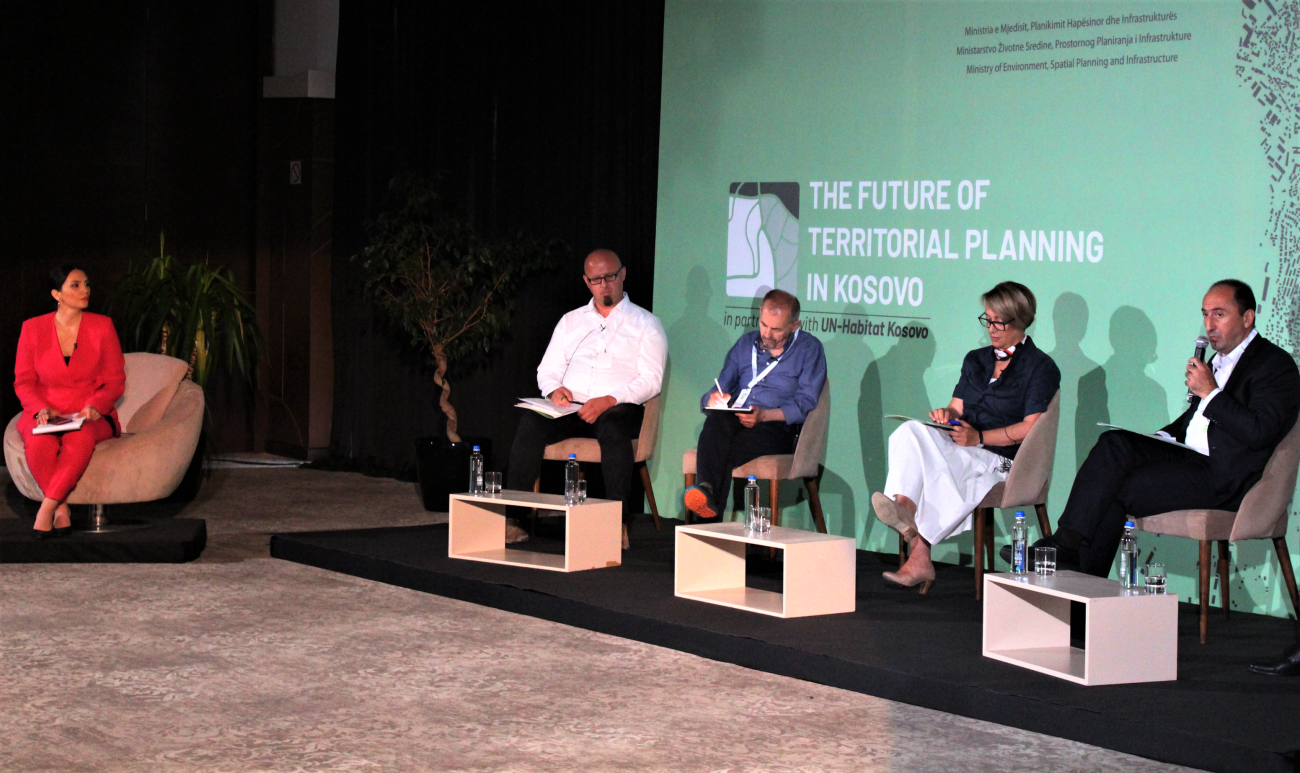The Ministry of Environment, Spatial Planning and Infrastructure, in partnership with UN-Habitat Kosovo, on Friday 25th organized the Symposium “The Future of Territorial Planning in Kosovo”, which was attended by Mr. Albin Kurti, Prime Minister of Kosovo, Mr. Liburn Aliu, Minister of Environment, Spatial Planning and Infrastructure, Mrs. Ulrika Richardson, UN Development Coordinator, Mr. Omar Siddique, Head of Office and Chief Technical Adviser of UN-Habitat in Kosovo, as well as many local and international experts.
The symposium was divided into three sessions, with the aim of elaborating the topics related to territorial planning in Kosovo, and addressing the global challenges for sustainable development, addressing the territorial, social, environmental, and economic consequences.
In this Symposium were discussed topics related to Institutional restructuring for a more effective and sustainable spatial planning system; Territorial planning approach for more balanced rural-urban development; and Integration of spatial planning, land management and housing for sustainable development.
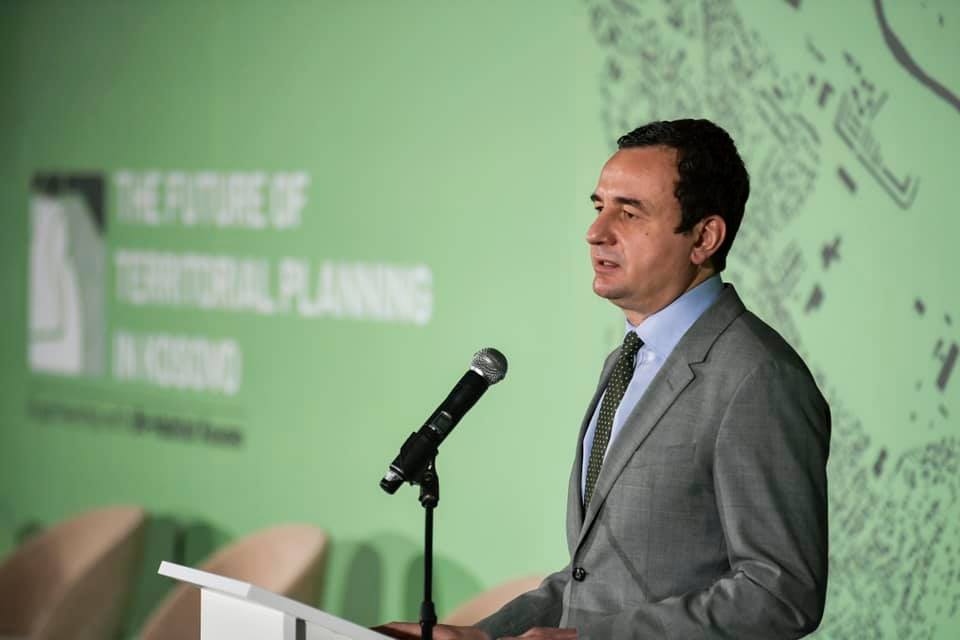
Albin Kurti, Prime Minister of Kosovo
According to the Prime Minister of Kosovo, Mr. Albin Kurti, this symposium is important to pave the way for the development of a deeper and academic discourse on the territory, its planning and materialization, the engagement and interaction of professionals in various fields, civil society, and citizens in a more comprehensive planning process, and to join movements to protect the planet against global challenges.
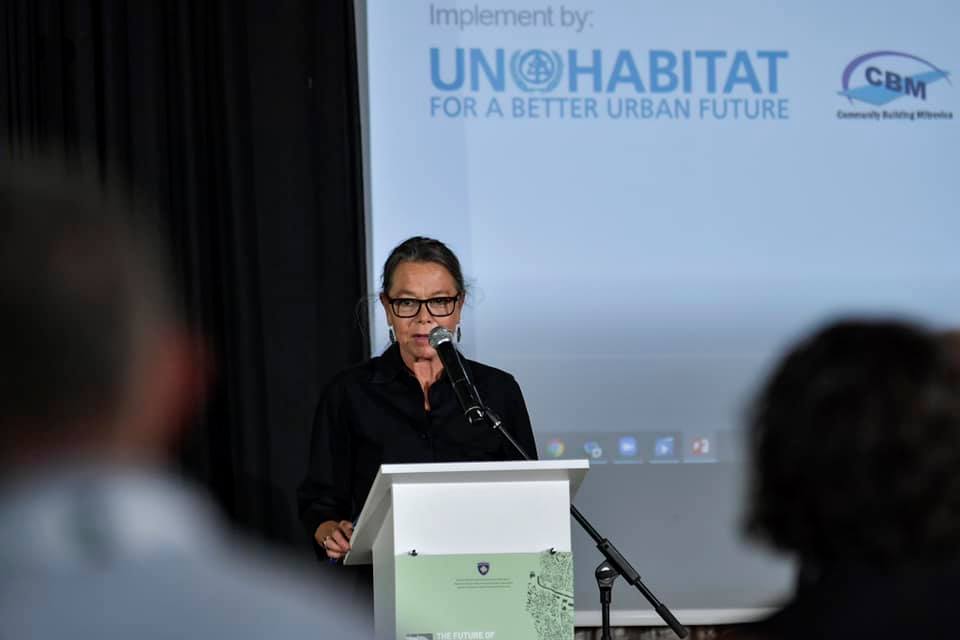
Ulrika Richardson, UN Development Coordinator in Kosovo, UNKT
Mrs. Ulrika Richardson, UN Development Coordinator in Kosovo, pointed out that Spatial Planning is like a mediation tool on how and for what and whom public space is used. Therefore, she said, “it is also a critical tool for creating shared values and social contract for equality, human rights, and progress for all, in balance with nature and Kosovo’s green economic transition.”
Meanwhile, according to the Minister of MESP Mr. Liburn Aliu, Kosovo is at an important crossroads in terms of spatial planning, so thoughts need to be deepened so that the level of academic discussion precedes the political decisions that will be taken on the future of territorial planning in Kosovo. “Immediate institutional commitment is necessary to build a more efficient and sustainable spatial planning system in Kosovo,” said Aliu.
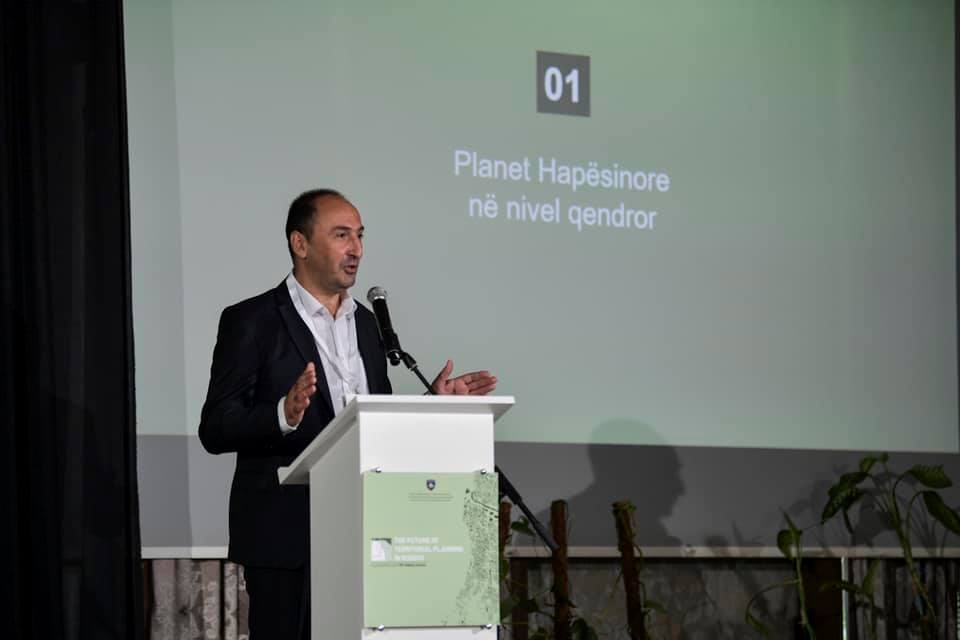
Liburn Aliu, minister of Environment, Spatial Planning and Infrastructure
The Head of Office and Chief Techincal Advisor of UN-Habitat Kosovo, Mr. Omar Siddique, stressed out that UN-Habitat in Kosovo helps bridge the gap between the technical and the policy dimensions of territorial planning and supports central and local leaders to better communicate with their technical planning departments and ask the right questions.
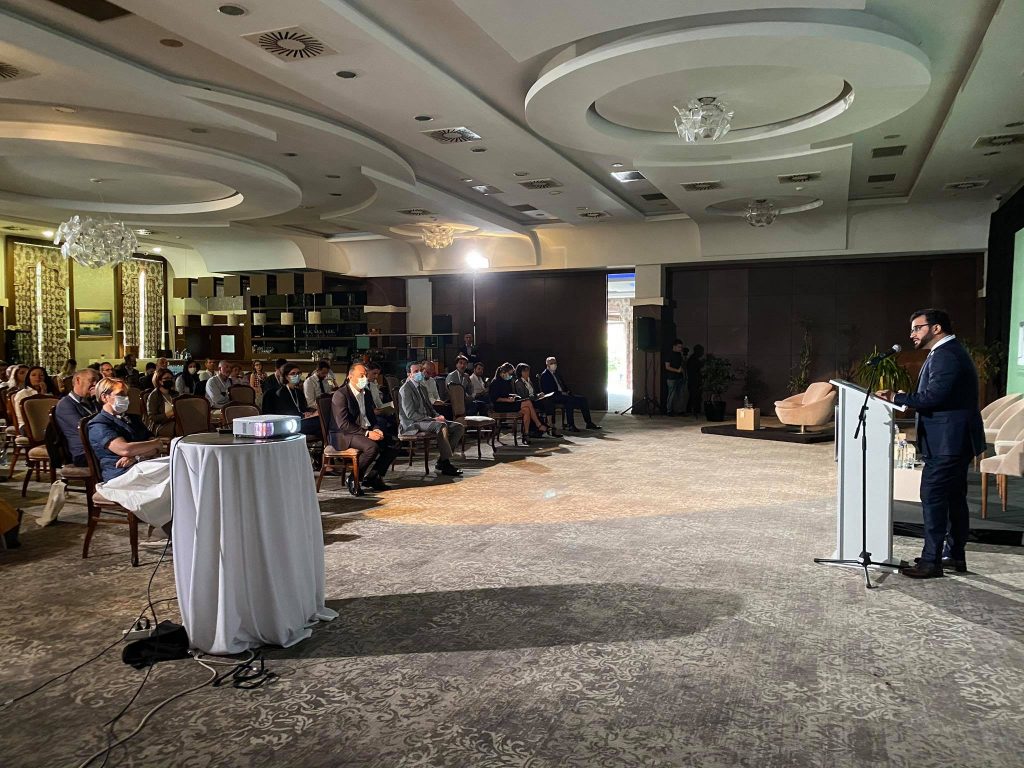
Omar Siddique, Head of Office and Chief Technical Advisor of UN-Habitat Kosovo
“The correct policies on density, land use, public space and the layout of infrastructure and services influence both the urban and rural form and patterns. Knowing how to choose the pattern that best delivers the needs of a city, and its surrounding rural region is a key skill successful central and local leaders must develop”, he said.
